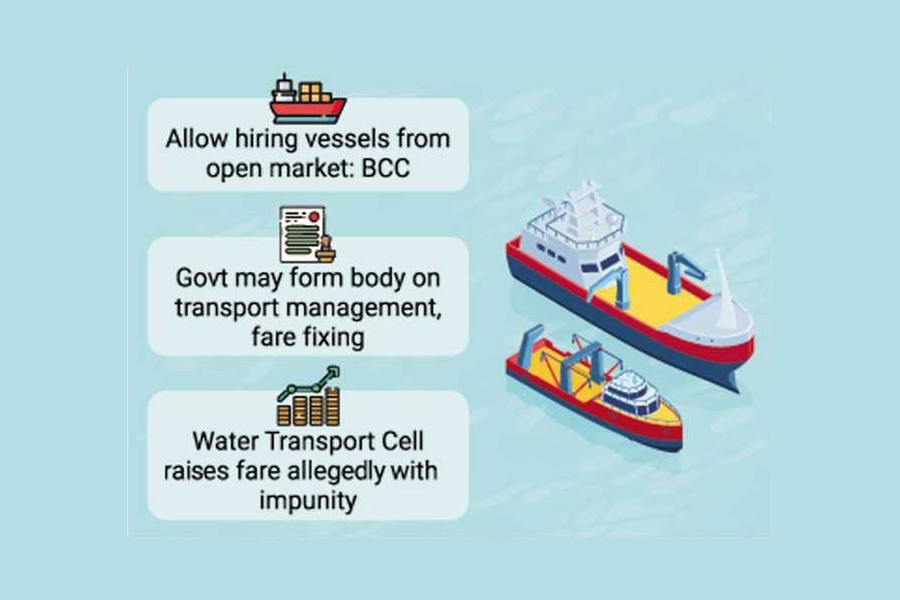A major cuase of high prices the consumers have to pay through their nose is hike in fares for transportation of goods at seaports under a 'monopoly' in lighter-vessel operations, it was found in a case trial.
The statutory-judicial body responsible for ensuring fair competition on the Bangladesh market, while settling a case, issued a set of directives stating that the 'monopoly' business in lighter-vessel operations will come to an end if its orders are executed by the authorities concerned.
But, in a latest instance, the lightering fares were jacked up by 15 per cent just 15 days before the Bangladesh Competition Commission (BCC) handed down its verdict on November 29.
The BCC gave its final verdict on a case filed by the country's biggest rod manufacturer --- BSRM --- against Water Transport Cell (WTC) alleging that a 'cartel' exists in the country's water -transport sector for long and that is responsibly for cost hike of basic goods and resultant price rises on the consumer market.
Some 1300 vessels under the WTC used to transfer industrial raw materials to and from moored big vessels at outer anchorage of Chattogram seaport.
Such small vessels carry essential cereals like rice and maize, iron scraps, cement clinker, stones and food products. Rise in fares of such mode of transport makes doing business costly. And increased fares means escalation of prices of final products on the market and the end-consumers pay for it, businesses say.
"We've given our verdict after both party-hearing. We believe that the monopoly will no more exist in the sector if the government implements our directives," Mr. Moifizul Islam, chairperson at the Bangladesh Competition Commission (BCC), told the FE on Saturday.
In its directives, the BCC said anybody who wants to hire lighter vessels from open market should be allowed.
It also said the ministry of Shipping (MoS) and the Department of Shipping may take necessary measures as to how to ensure competition in hiring vessels from open market.
The BCC suggests an organisation to handle management and the fixing of fares that will ensure competitive environment and market in the sector.
It noted that the government may enact laws to deal with the matter.
The vessel owners hike fares at their will and make businesses pay higher for haulage. Importers who bring consumer goods and industrial raw materials in bulk have to wait for their mercy to get schedule to carry goods from mother vessels. They cannot hire others' vessels.
In the meantime, BSRM officials said they want to hire vessels from the open market but cannot do it under the existing system. Only members of the WTC can carry the goods.
"Actually we want to ensure competitive market in the sector," Mr. Sanjay Kumar Ghosh, head of supply chain at the BSRM, told the FE.
WTC representatives told the FE that they have already downward adjusted fares, making the importers happy.
They said they do not have any cartel in the business.
"We're controlled by the DG, Shipping, of the Ministry of Shipping," said Mr. Nurul Hoque, convenor at the WTC.
Mr. Hoque said they had already reduced fares and everybody is now happy over the new fares.
"We don't have any cartel or monopoly"
The WTC trimmed down fares by nearly 33 per cent to TK 280 per tonne in August last. The BSRM management had field the case with the BCC in January last.
However, it has raised its fares again, effective from November 15, on grounds of surges in fuel prices. The new rate is Tk 322 per tonne, or 15 per cent up.
During FY2016-FY21, approximately 80 million tonnes of goods were imported each year on average, of which 70 per cent were unloaded at outer anchorage and the remaining 30 per cent at the port jetties.
The WTC currently has around 1,300 ships under its ambit while the total number of lighter ships that transport goods from the outer anchorage of Chattogram port on 34 routes across the country is 25,000.


